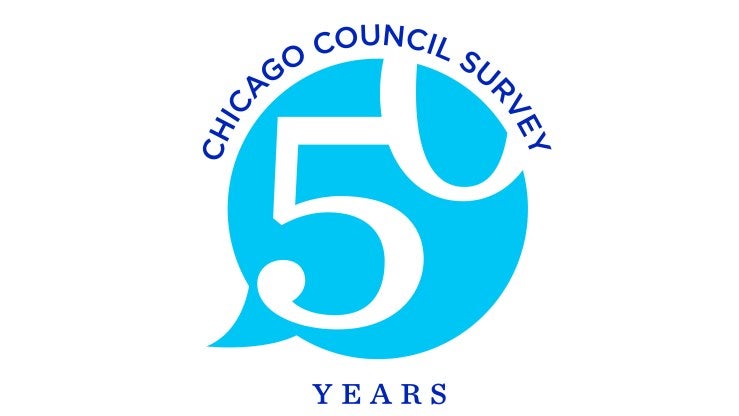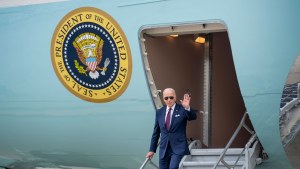American Support for Active US Global Role Not What It Used to Be

While most Democrats favor taking an active part in world affairs, Republicans remain divided.
As Democrats meet in Chicago to officially nominate Kamala Harris and lay out their platform for the 2024 election, foreign policy will be one area of scrutiny. For their part, the American public is most focused on domestic concerns. Perhaps as a reaction to US involvement in the wars in Ukraine and Gaza, Americans have been less inclined over the past two years to favor active US participation in international affairs than in recent years.
Support for an Active US Global Role Near Record Lows
Fewer than six in 10 Americans think the United States should play an active role in world affairs (56%, 43% stay out of world affairs). This reading is one of the lowest levels recorded since the survey question was first asked in 1974. Until 2015, Republicans were on the leading edge of support for international engagement. But since then, it is Democrats who have become the strongest champions of US participation on the global stage.
More than two-thirds of Democrats (68% vs. 31% who think the United States should stay out of world affairs) and a bare majority of Republicans (54%, 44% stay out) think it is best for the United States to play an active role. Only a minority of Independents agree (47%, 52% stay out). While still solidly supportive, Democrats have also declined on this indicator: in 2020, 78 percent of Democrats supported an active role, perhaps as a corrective response to the relatively more isolationist views of former President Donald Trump.
Narrow Majority See More Advantages than Disadvantages to US Global Role
At the same time, a slight majority continue to say that the benefits of maintaining the US role in the world outweigh the costs. This reading is not that far off from previous surveys, and perhaps because it specifically includes costs in the question, support has generally been lower than other indicators about US international involvement. Here too, two-thirds of Democrats (65%) are convinced that the benefits of maintaining the US role outweigh the costs, while Republicans and Independents are evenly divided (49% each).
About half the American public either say that the United States has enough resources to take care of its own problems at home as well as take a leading role in world affairs (33%) or say because the United States is the world’s strongest and richest country, it has the responsibility to take a leading role in world affairs (17%). But the other half disagree, saying that the United States has limited resources and its own problems at home, so it needs to reduce its involvement in world affairs (49%).
Consistent with the previous results, Democrats are the most supportive of the US taking a leading role in world affairs. A majority of Democrats say that either the United States has the resources to handle a leading role while also taking care of problems at home (39%) or that the United States has a responsibility to take leading international role because it is the world’s strongest and wealthiest nation (26%). By contrast, majorities of Republicans (57%) and Independents (54%) say the United States needs to reduce its global involvement because of its limited resources and problems at home—though as in previous questions, sizable minorities of both partisan groups take the other position.
This analysis is based on data from the 2024 Chicago Council Survey of the American public on foreign policy, a project of the Lester Crown Center on US Foreign Policy. The 2024 Chicago Council Survey was conducted June 21–July 1, 2024, by Ipsos using its large-scale nationwide online research panel, KnowledgePanel, in English and Spanish among a weighted national sample of 2,106 adults 18 or older living in all 50 US states and the District of Columbia. The margin of sampling error for the full sample is ±2.3 percentage points, including a design effect of 1.1229. The margin of error is higher for partisan subgroups (±4.2 points for Republicans, ±3.9 points for Democrats, and ±3.8 points for Independents.) or for partial-sample items.
Partisan identification is based on how respondents answered a standard partisan self-identification question: “Generally speaking, do you think of yourself as a Republican, a Democrat, an Independent, or what?”
The 2024 Chicago Council Survey is made possible by the generous support of the Crown family, the Korea Foundation, and the United States-Japan Foundation.



Related Content
 Public Opinion
Public Opinion
Results and analysis of the Council's annual survey of American views on foreign policy.
 US Foreign Policy
US Foreign Policy
Republicans with a very favorable view of the former president seem to prefer a US role that is more independent and less cooperative.
 US Foreign Policy
US Foreign Policy
For the first time, a majority of Republicans think the United States should stay out of world affairs.
 Public Opinion
Public Opinion
Unlike their elders, young Americans don’t buy into US exceptionalism and are divided on whether the United States should play an active role or stay out of world affairs.

